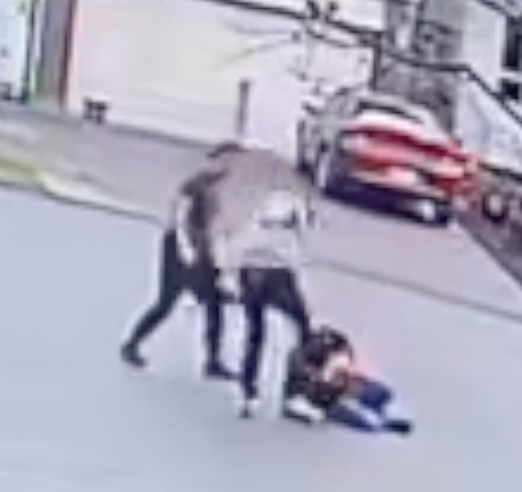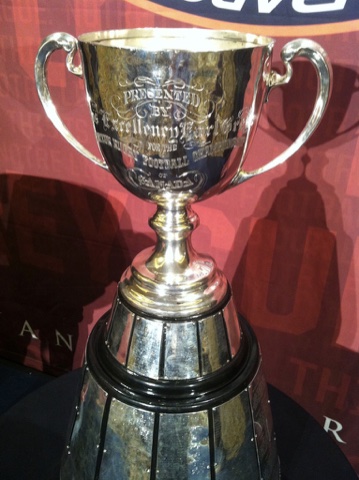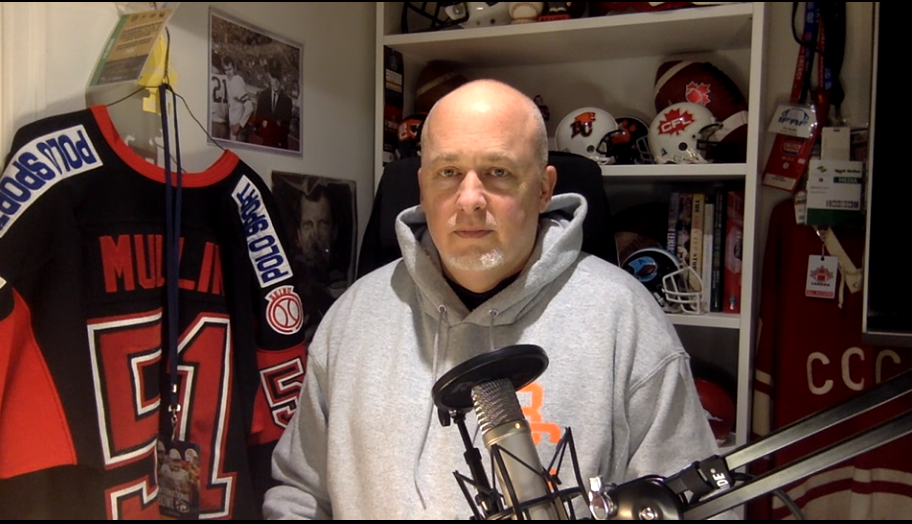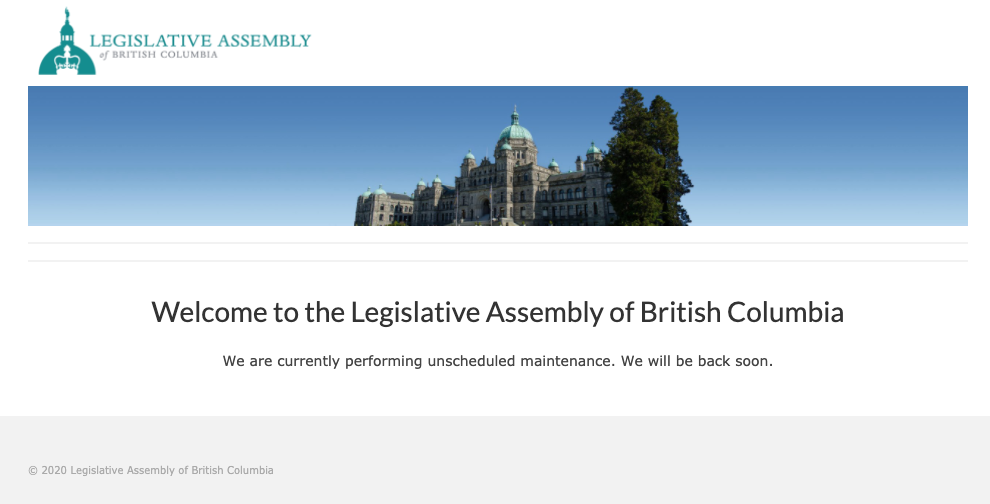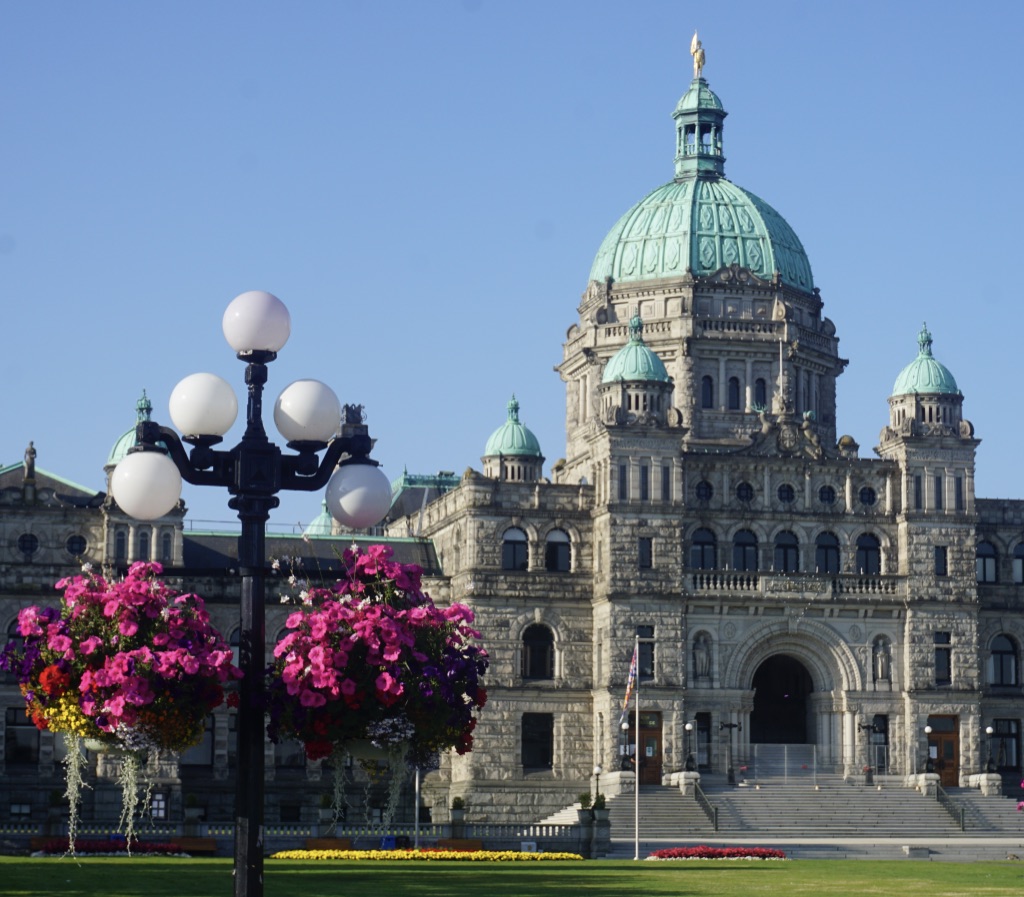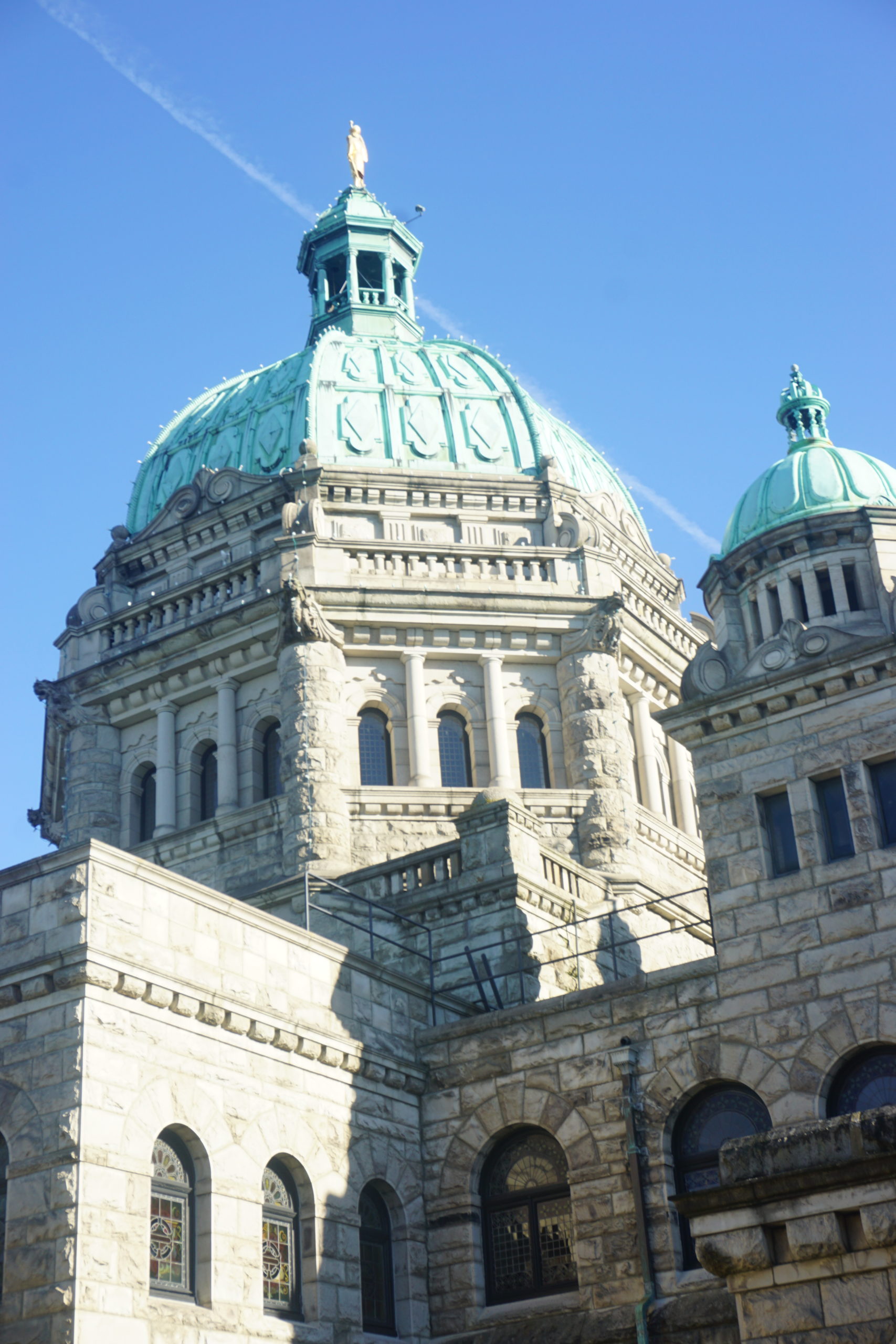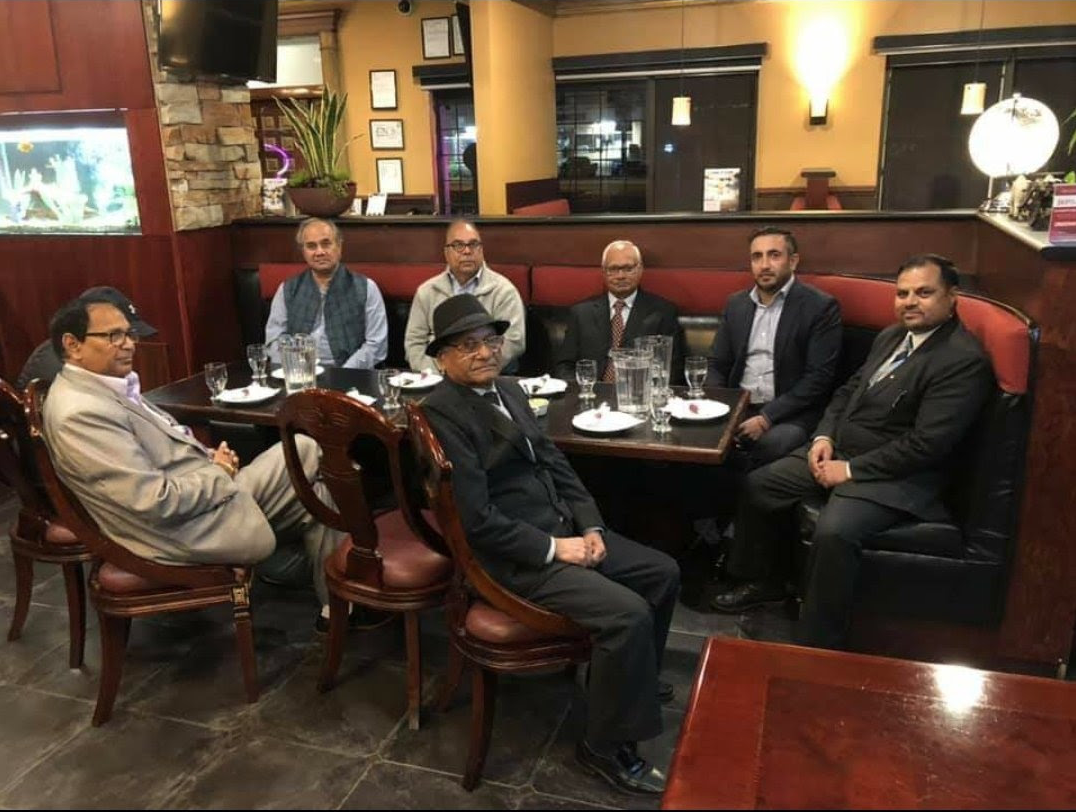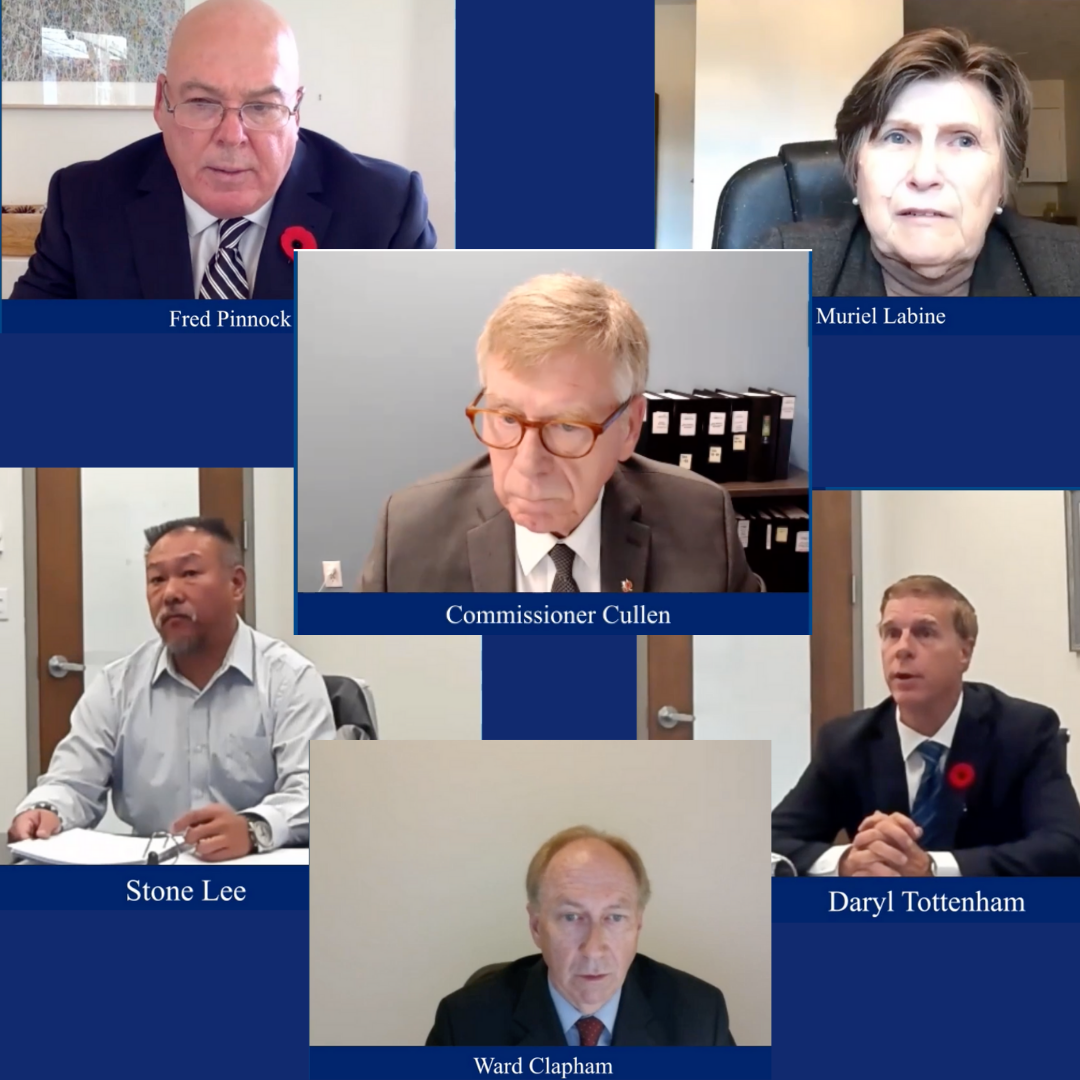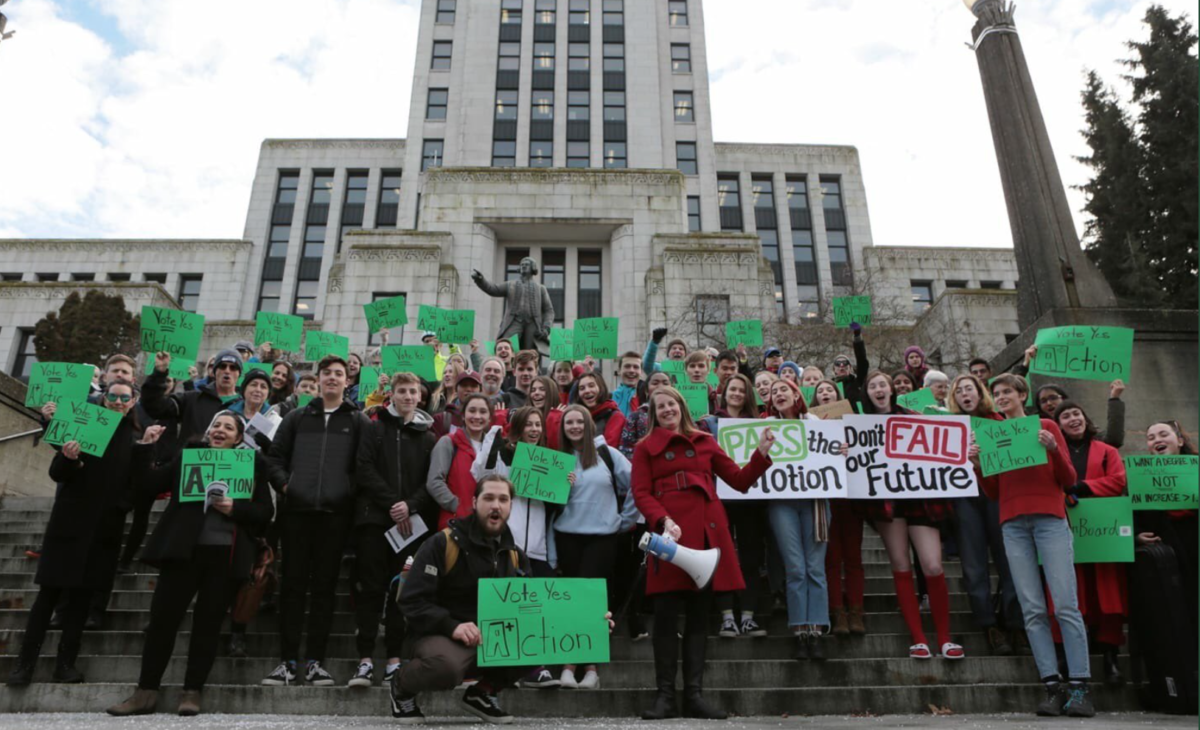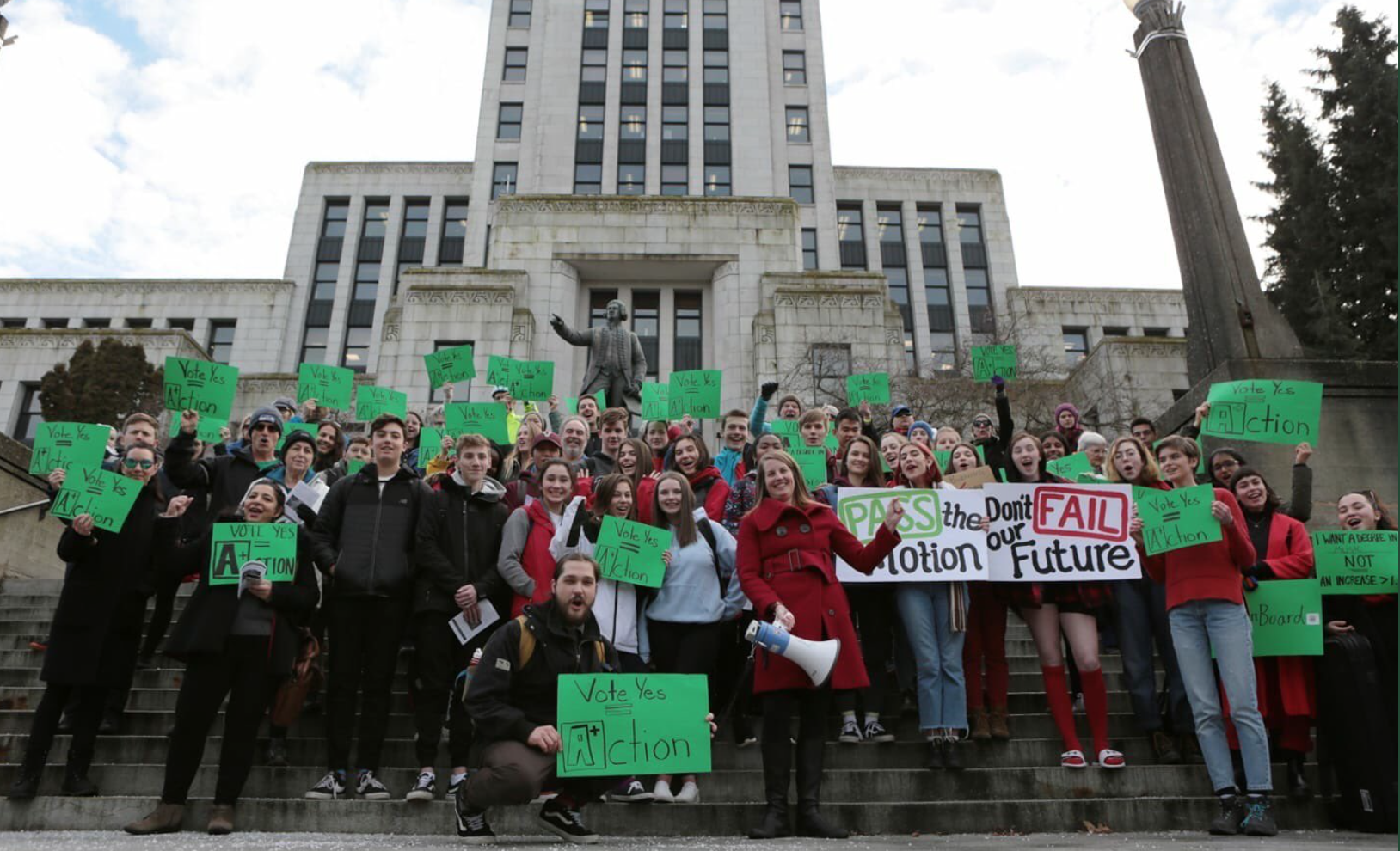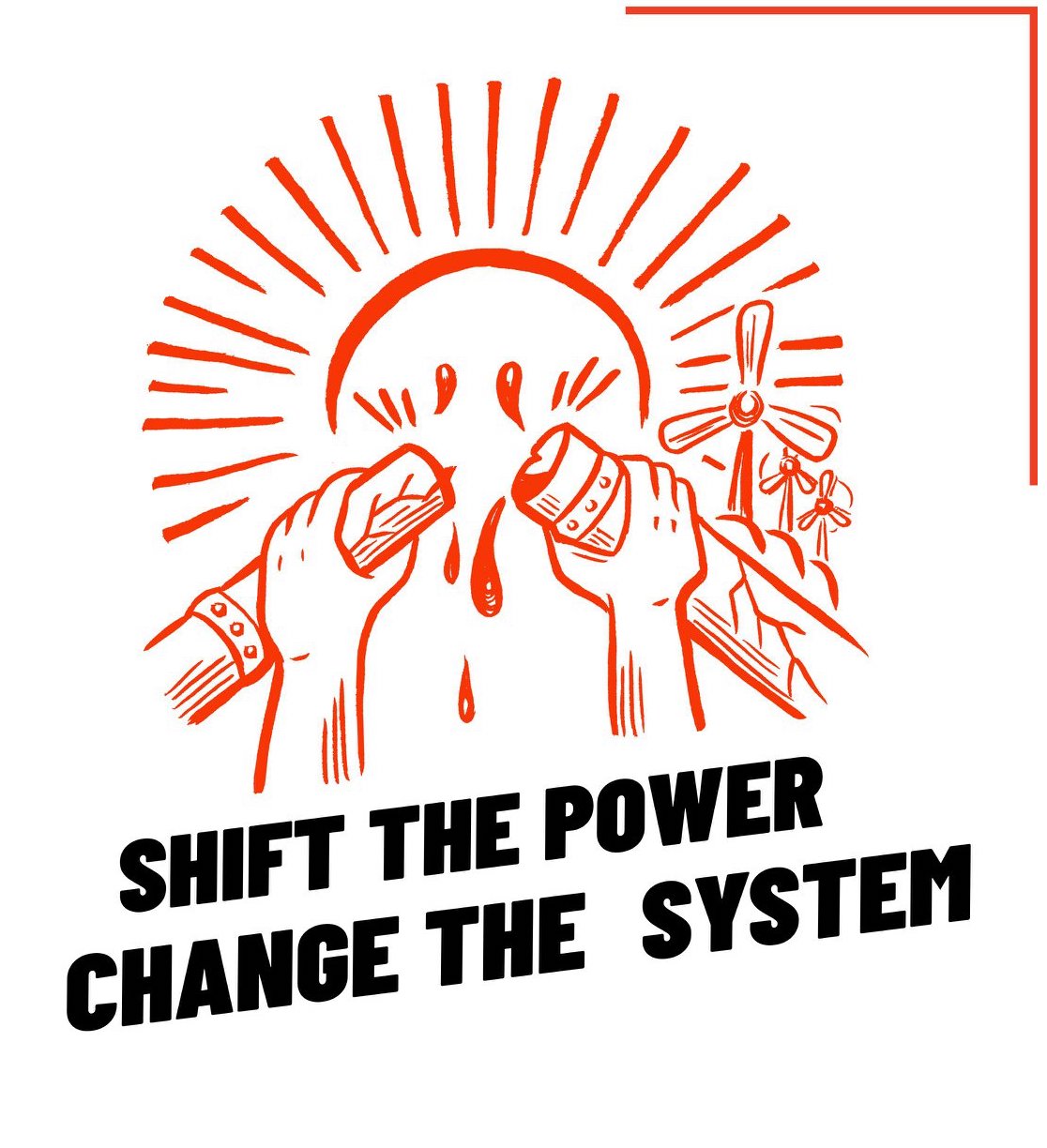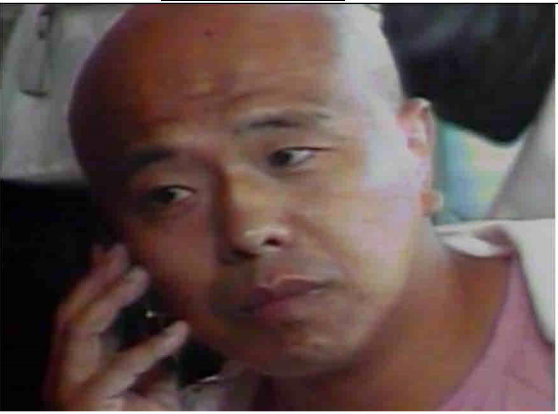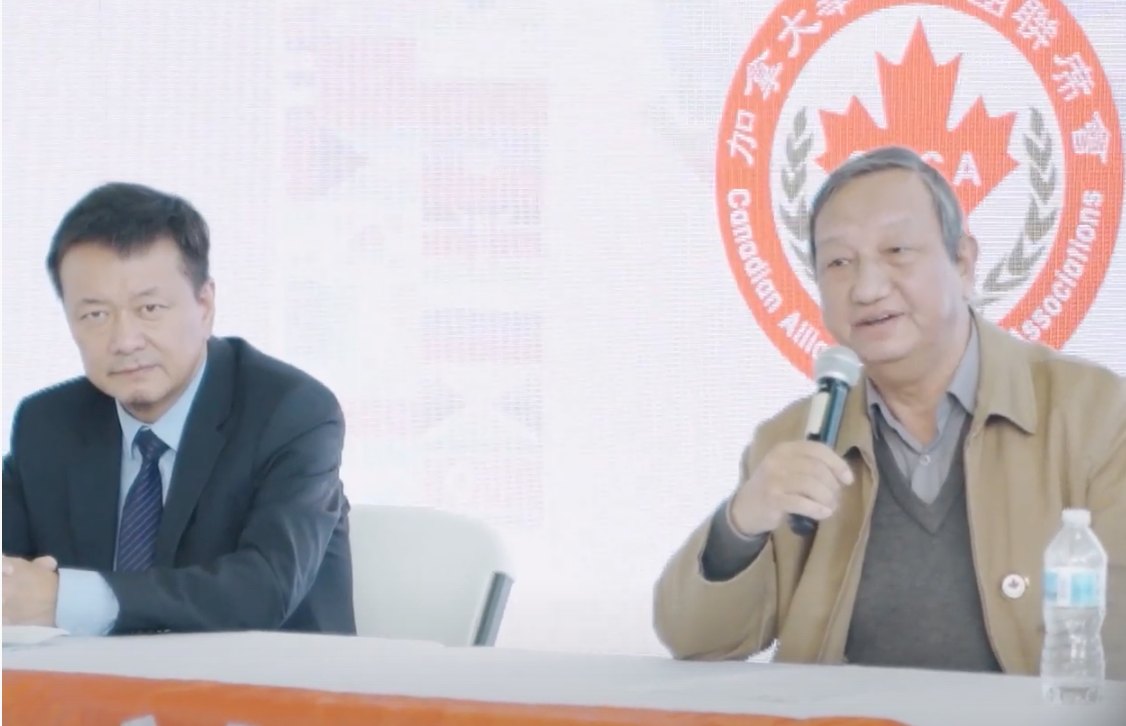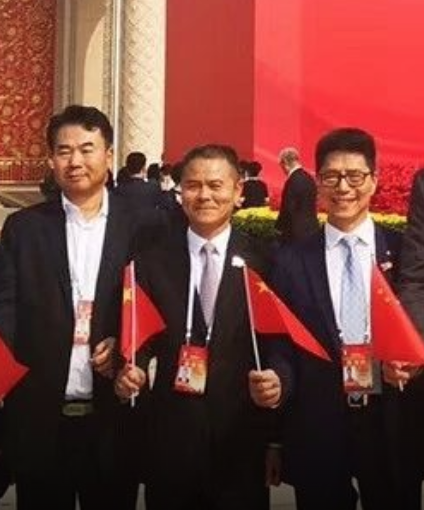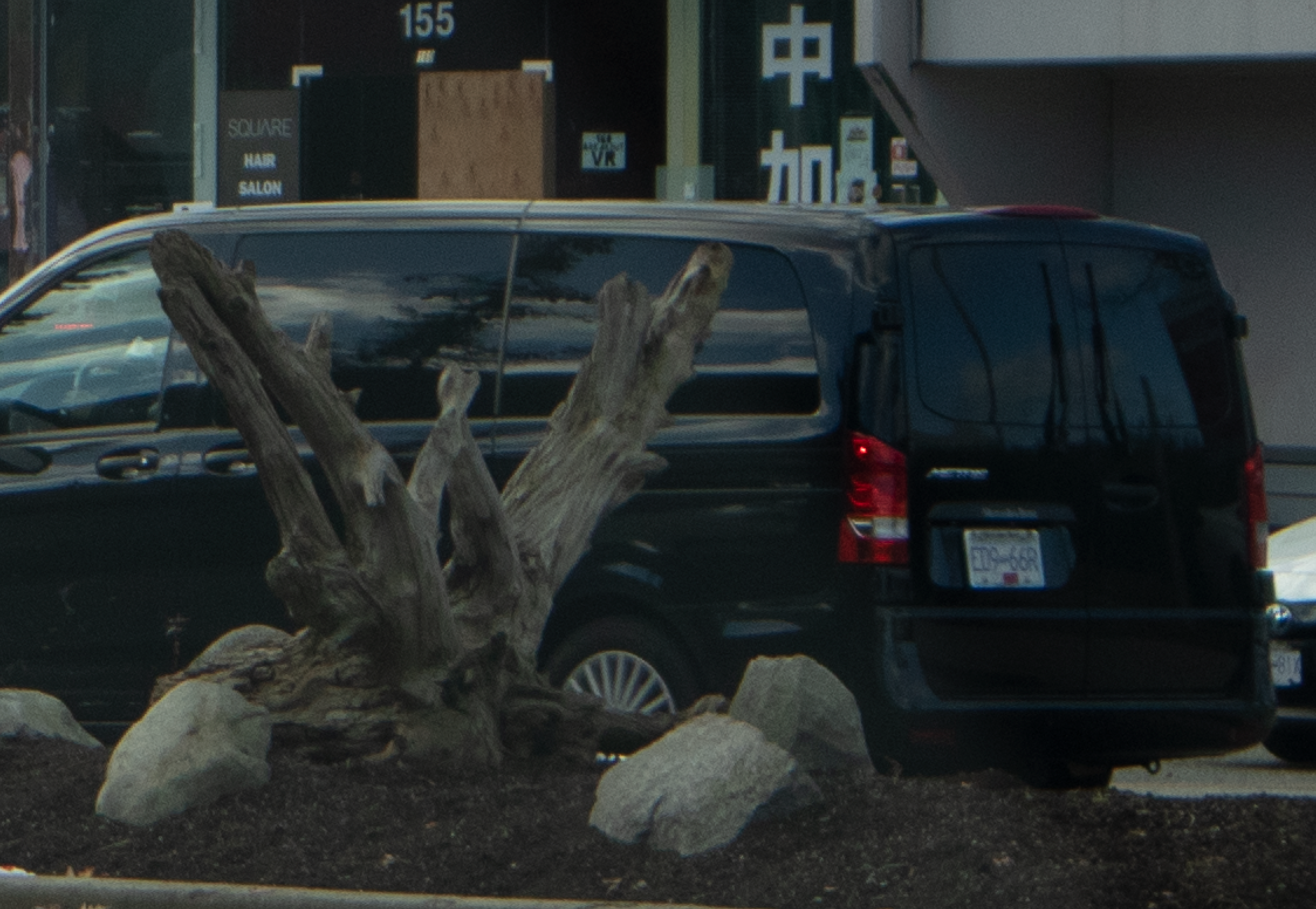Exclusive: Surrey cul-de-sac protest turns violent
Bob Mackin
A protest in a Surrey cul-de-sac that has happened almost daily since mid-September boiled over into a violent assault Nov. 25.
Exclusive surveillance video from a resident of the neighbourhood near Bonaccord elementary school shows two men appearing to tackle a man on the road and then repeatedly kick him in the head.
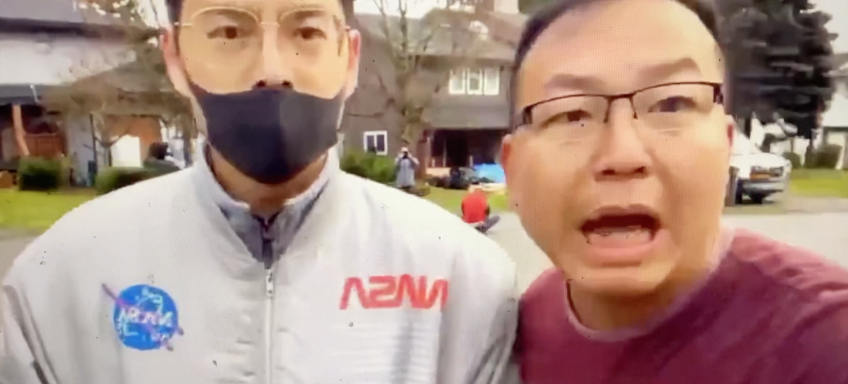
Two men who were seen on video attacking Louis Huang on Nov. 25 in Surrey (Huang Hebian/Twitter)
The victim is Louis Huang of Vancouver Chinese Human Rights Watch, a harsh critic of the Chinese Communist Party and its United Front foreign influence campaign. Huang needed hospital treatment for his injuries.
Cpl. Elenore Sturko of the Surrey RCMP told theBreaker.news that police were called around 10:45 a.m. Nov. 25 to the 9700-block of 149 St. Two men were arrested, but released with orders to stay away from the neighbourhood.
A report is pending for Crown counsel to consider charges. Sturko said police had previously made contact with those on both sides and are working with Surrey city hall to “see what avenues” there are to resolve the issue.
“Although we haven’t shut the protest down, there are rights to protest, there are rights to conduct peaceful protests,” Sturko said. “However, when see like today, when things cross over into the realm of criminality, there will be action taken.”
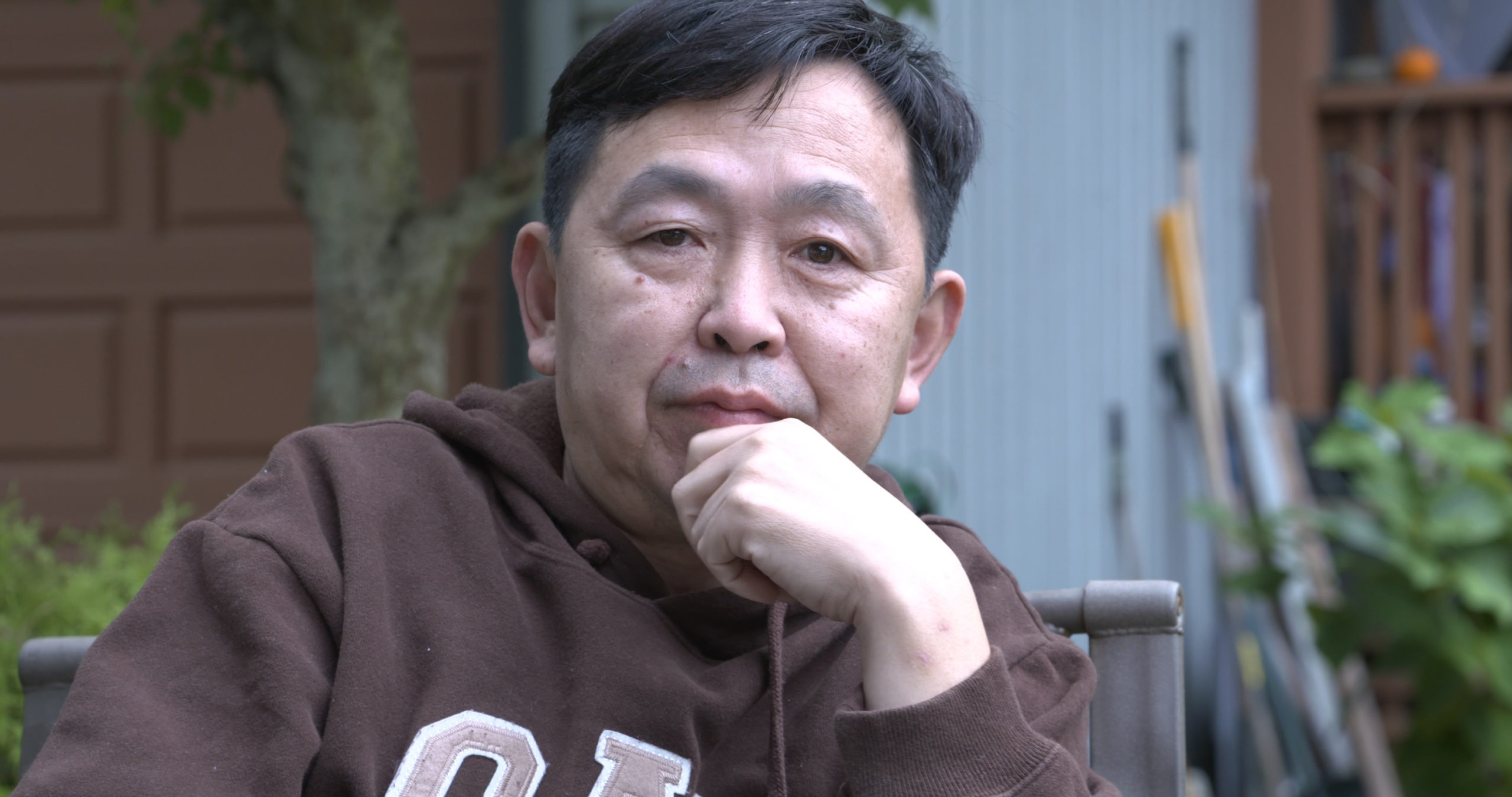
Bing Chen Gao
The protesters purport to oppose the Chinese Communist Party and are affiliated with the New Federal State of China campaign backed by former Donald Trump strategist Steve Bannon and Chinese billionaire Guo Wengui. The target of the protests is journalist Bing Chen “Benson” Gao. The protesters have carried signs accusing Gao of spying on them for the Chinese government.
Gao has emphatically denied their accusation, calling it slanderous. Gao made headlines in 2016 when he was fired from the Global Chinese Press newspaper for a column critical of Chinese foreign minister Wang Yi.
Update (Feb. 3, 2021): Mu Bai, 44, and Shiliang Yin, 31, were charged Jan. 29, 2021 with assault causing bodily harm. Bai’s next court date is Feb. 22, while Yin’s is Feb. 26, both in Surrey Provincial Court.
Support theBreaker.news for as low as $2 a month on Patreon. Find out how. Click here.
Bob Mackin A protest in a Surrey cul-de-sac






